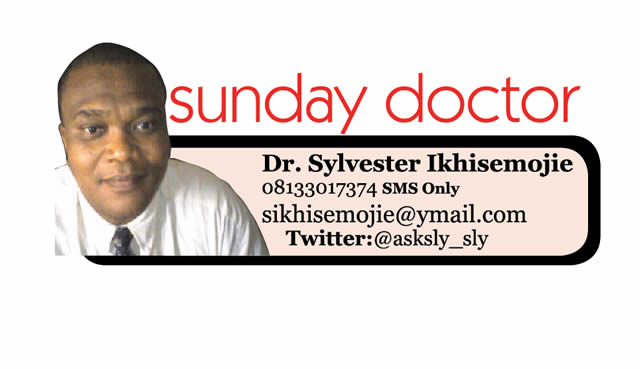
Long ago, hospitals in many countries moved away from a manual way of doing many different things towards technology-driven services. The revolution began with the advent of the personal computer while the associated revolution in desktop publishing made popular by Apple incorporated completed the one-two combination. The difference was made clear during the conclusion of the Strategic Arms Limitation Treaty 2 (SALT 2) in Vienna in 1979 when then US President Jimmy Carter and Soviet President Leonid Brezhnev signed the relevant documents. While the US delegation had their papers all completed and printed out on the same evening that the treaty concluded due to the novelty of having such hardware available to them, the Soviet delegation worked throughout the night and into nearly half of the following day typing their own version of the relevant documents on manual typewriters. The difference was clear; the quality of the American document was far superior, had little or no errors of spelling or context and was produced more than 14 hours earlier than the Soviet versions. A new age of personal communications had been launched and publicly validated and healthcare institutions went to the drawing board to incorporate the new technology into their service delivery.
That happened 43 years ago and hospitals have developed the hospital information system in different ways to improve communication channels and networking between various departments to greatly increase efficiency and improve the standard of care. Let us hypothetically suppose that with the advent of the mobile phone service in Nigeria, it has now also become possible to leverage this basic tool of everyday life to improve our daily grind; the benefits will be unquantifiable in terms of efficiency, limitation of unnecessary loss of useful man hours and the application of the economies of scale to the nature of healthcare provision across the board. We can start from the outpatient department in virtually all the public hospitals in Nigeria to understand the scale of the challenge. If this technology is properly deployed and harnessed, all outpatient clinic appointments will be personalised and the appointment system can then be more effectively handled. In that way, doctors who are billed to run clinics on particular days will get dedicated patients to see; such patients will be allocated time-frames to appear and be evaluated by their doctors. The number of patients per doctor per clinic can then be strictly regulated and a short message sent to each patient on their mobile phones will confirm their appointment.
That should prevent the current situation in which each hospital has an outpatient department resembling a market. And so, you get a message asking you to appear at the hospital at 10am for example, and another patient at 10:15 am and each doctor gets to see a dozen or so patients over three or four hours. Each patient gets proper attention. Each one feels their time has been valued. There will be no need to leave home at 6am or even earlier to get an advantageous slot in the clinic only to be attended to at 4 pm, nearly the close of work. Every patient will come to understand that when a particular booking for a certain doctor is full for one day, there will be an opportunity on another date to be seen. Each patient who is seen has their records entered into a hospital information system that is able to automatically update their data on each visit with respect to age, current diagnosis and results. Tests are ordered through the computer-based system and patients simply obtain relevant slips that inform them when their tests are scheduled for and how they can make payments. This will avoid a situation where patients congregate at payment points at the laboratory, pharmacy, radiology department and blood bank jostling and cursing each other and also the employees huddled together inside, while trying to obtain an advantage.
Such scenes inevitably lead to the erosion of etiquette that we see across the board and engender the advent of the middle man and the man-know-man syndrome prevalent in many of our hospitals without which nothing much is ever achieved. It is often embarrassing to have people outside of the state, or country or senior government officials call a particular doctor and ask them to help ensure that a certain individual gets to be seen at a particular department in a certain hospital. As a resident doctor, this was something that often confronted one especially demands like that made to your boss who then breathes down your neck. As a consultant, one had the displeasure of being bugged by a sitting governor on behalf of a patient. In an automated system, such interventions become unnecessary as the information system somehow adjusts automatically to such demands, makes results available to any person with authorised access to the system any time such results are required and aids rapid decision making even in a busy hospital. We neither lack the manpower nor the technical backbone to make such a system workable but our system allows people to fend for themselves and help in propagating the resulting chaos. The result is what we see in every hospital.
The system being advocated here is no different from what all the financial institutions have made routine in their operations. The medium and big operators in the hospitality industry from hotels to airlines also widely use similar systems. Why our healthcare facilities have lagged behind more than four decades after it was started elsewhere is impossible to understand. And there’s more; right from the outpatient clinic, the attending doctors do more than examine the patient and request various investigations. They prescribe medications through the system and such prescriptions appear at the relevant pharmacy within the hospital. The patients do not have to take several pieces of paper from one corridor to another getting confused and misplacing some of these documents while looking for where to effect payment. If the investigations have been properly requested, all that is required is to appear at the laboratory or X-ray department, pharmacy or blood bank, make the relevant payment often by swiping a card and get the service requested. Medications not available in the hospital automatically generate a printed copy of such a prescription with which the drug is purchased in a community pharmacy. These innovations make life easy for everyone: the healthcare worker, the patient, the service providers and the various staff at the points of interaction.
In the final analysis, the above situation makes it possible to save everybody’s time and improve decision-making. There is less tension on behalf of the worker and the patient and the system is friendlier and less burdensome on every person. In this way too, the hospitals are forced to run more efficiently and the middleman is removed. All that is required is to create the platform for the development of a robust system like we have just described. It is in use already in a few private hospitals and it is a wonder that individuals who own healthcare institutions are able to provide such a service, when it eludes the government which has a lot more money and available technical support. The answer to that is simple: there is no commitment. And there is no regard for installed equipment which officials forget also has a life span. The people do not matter and it is considered to be a normal thing for the ordinary man to always struggle and fight for what ought to be his. Lastly, besides the private institutions already blazing the trail in this regard, the health management organisations make use of a less complex system to get their work done. That shows what is possible in a difficult country and with the right level of commitment; nothing in this age of personal digital communications should prevent anyone from benefiting from this unique service.
Questions and answers
Dear doctor, due to the feeling of weakness on one side of my body, I have conducted CT brain scan, thyroid function test, full blood count ECG of the heart, fasting blood sugar, urinalysis all of which came out clear. Yet, the symptoms of weakness, dizziness, sleeplessness etc have continued. So it was suggested for me to do a cholesterol test and here is the result. I have seen a number of doctors in the FESTAC area where I stay since the symptoms began two months ago but it seems they are even confused about my kind of problem. I have high blood pressure but it is being managed well with Carvidolol and the reading is always around 138/90mmHg. Despite everything, I can walk normally, feed myself and drive but my side feels heavy. Please what do I need to do at this point? 0803xxxxxxx
You have done quite a number of extensive investigations and it is not at all clear what the problem seems to be. However, depending on what predated these problems, particularly if it is the issue of poor sleep, this could all be related to that especially if you are able to walk around normally and handle basic things like cutlery and also drive your car. The lipid profile you sent shows moderate increases in both the total cholesterol level and the low density lipoproteins which is the harmful one. So you do need to see a physician who may refer you further to a neurologist or a psychiatrist depending on what he finds to be wrong with you. After all of them have examined you, it should be possible to get the cure you need.
Dear doctor, thanks for your educative articles in Sunday PUNCH on children. The piece was timely. My son is worried about his almost three-year-old who has yet to talk but can identify objects and persons by names. They want him to start talking like his niece of almost the same age. I am of the opinion that a female child is like a parrot when it comes to talking or chatting. Am I correct to say so? Many thanks. 0703xxxxxxx
Thank you very much for your question and your comments. It is usually the case that some children are faster than others in getting to identify objects and persons correctly and eventually to speak. Your grandson is still under 3 years and it is good enough that he is able to positively identify persons and objects. He will be able to talk soon enough especially if there are other children in the house. At this age, children will probably speak using 2 or 3 words. Over time, of course, females learn to speak a lot more than males and that is a feature that persists into adulthood.
Dear sir, I don’t really know what time it is right now over there because I live in the US. How are you and the family? I hope everybody is fine to the glory of God. Please I just want to ask what kind of vitamin is good for older people like me? I mean well over 55 years. I also want to find out what can be causing muscle pains. Is it a lack of some kind of vitamin? My daughter is also complaining that sometimes her muscles ache. She just did her blood work and everything is fine. She is 26 years old and I will send you her blood work shortly please. +1xxx4xxxxx
Thank you very much for inquiring about me and my family. You are very kind. We are doing well, thank you. At your age, you would almost certainly now be in your menopause and so it is fairly common to see situations like this. The common causes of such body aches at your age or for anyone else are; Fibromyalgia, osteoporosis and inadequate exercise.
The way to come out of that status is to increase protein intake, workout more regularly and take vitamin supplements appropriate for age. My recommendation would be that you take Well-woman or Centrum Silver or Geriatric Pharmaton and any one of these is taken once daily.
Dear doctor, greetings to you and your family. My daughter is 23 years old. I just wondered why she has to complain about muscle aches/ pain so frequently day in and day out. The doctor told her that it could also be due to stress. So she told her to do exercises. She told me that the doctor also told her to take one tablet of magnesium daily. She also said she doesn’t sleep well and often feels tired sometimes. Doctor, what do we do about all these complaints? Is it okay for her to take the magnesium? What does it do in the body? Thank you sir. 0808xxxxxxx
Good day to you as well and many thanks for extending your greetings to my family. Yes, fatigue can contribute to such pain. However, at such a young age it is important to get good quality sleep. Perhaps an over the counter medication like Diazepam, the one people popularly call Valium 5, taken at night might be helpful with getting adequate sleep and providing proper muscle relaxation. She can certainly use the magnesium tablets. It is a key mineral in muscle contraction and improved nerve function and so it can strengthen muscles around the body and the heart as well. It may also help to prevent hypertension.
Doctor doctor, I have this issue of tingling sensation on my palms, shoulder and sometimes numbness and have complained about that before in 2018. At the time, my doctor then changed my BP drugs from amlodipine to something else and now I have been on amlodipine 10mg and losartan 25mg for a while now although the losartan is not always in use as I only take it when it is high. I have combined both since 2021 and my BP reads: 130/84, 140/90 and sometimes 150/90. What should I do? The sensation interchanges like that from side to side and the last time I had it, it was on the right shoulder and now both palms. 0802xxxxxxx
Your question is somewhat confusing and you seemed to indicate that at some point in 2018, the amlodipine was substituted for another medication you failed to name. And then further on you claimed that you were still on amlodipine but in association with losartan. Well, whatever it is you are taking, it is not likely that the sensations you feel in your upper limbs are related to your medications. There is probably something wrong with your cervical spine to produce the kind of effects you are talking about. As a result of this possibility, it is important that you go to a hospital and lay your complaints so that you can get a proper examination and perhaps a referral to see a neurologist. But as we do not know your age or gender, that’s as far as our advice can go for now. Best wishes.
Dear doctor, I want to find out why my period is bringing out black blood. Meanwhile, my period didn’t come at all in September, so I thought it’s as a result of too much stress but it is coming out this month and the flow is bad. It’s not flowing well and the colour is black. What is the cause of this and what should be done about it? Thank you. 0816xxxxxxx
It doesn’t mean anything health-wise. There is nothing to panic about. It’s just an indication that the blood has stayed for long in the uterus and had time to react with oxygen which turns it into dark brown or black. Occasionally, the menstruum could appear like this. However, if it has an unpleasant smell in addition to the colour change you described above, it would mean that there is an infection.
Dear doctor, l have just gone through your beautiful article titled “what is bacterial vaginosis”? It is a nice article. May your pen continue to flow. Doctor, your name sounds like someone from Edo State. I am a professor and dean of the college of health sciences at one of the universities in Osun State. Do have a pleasant Sunday. 0806xxxxxxx
Greetings to you as well Prof. Thank you very much for your comments. Yes, I come from Edo State. I am from Ekpoma and have a really pleasant Sunday as well.





